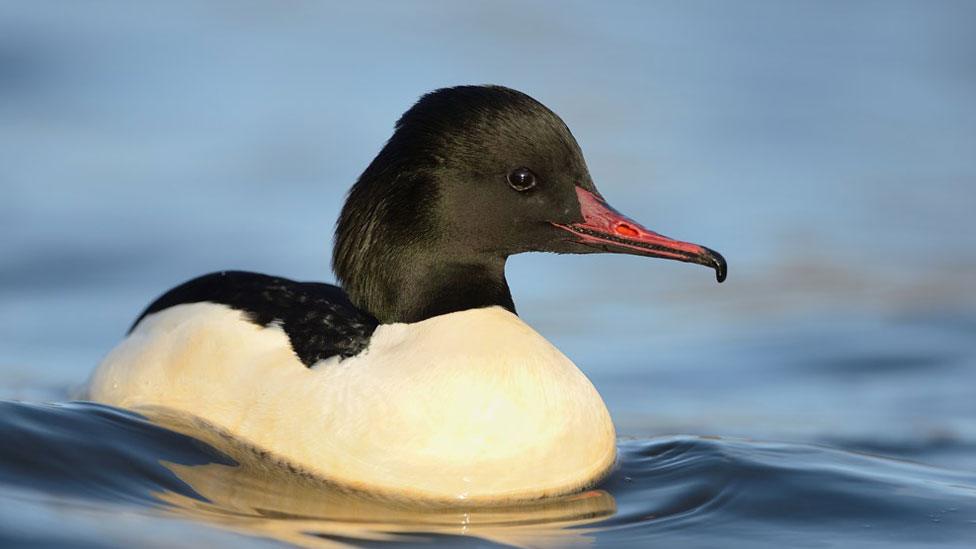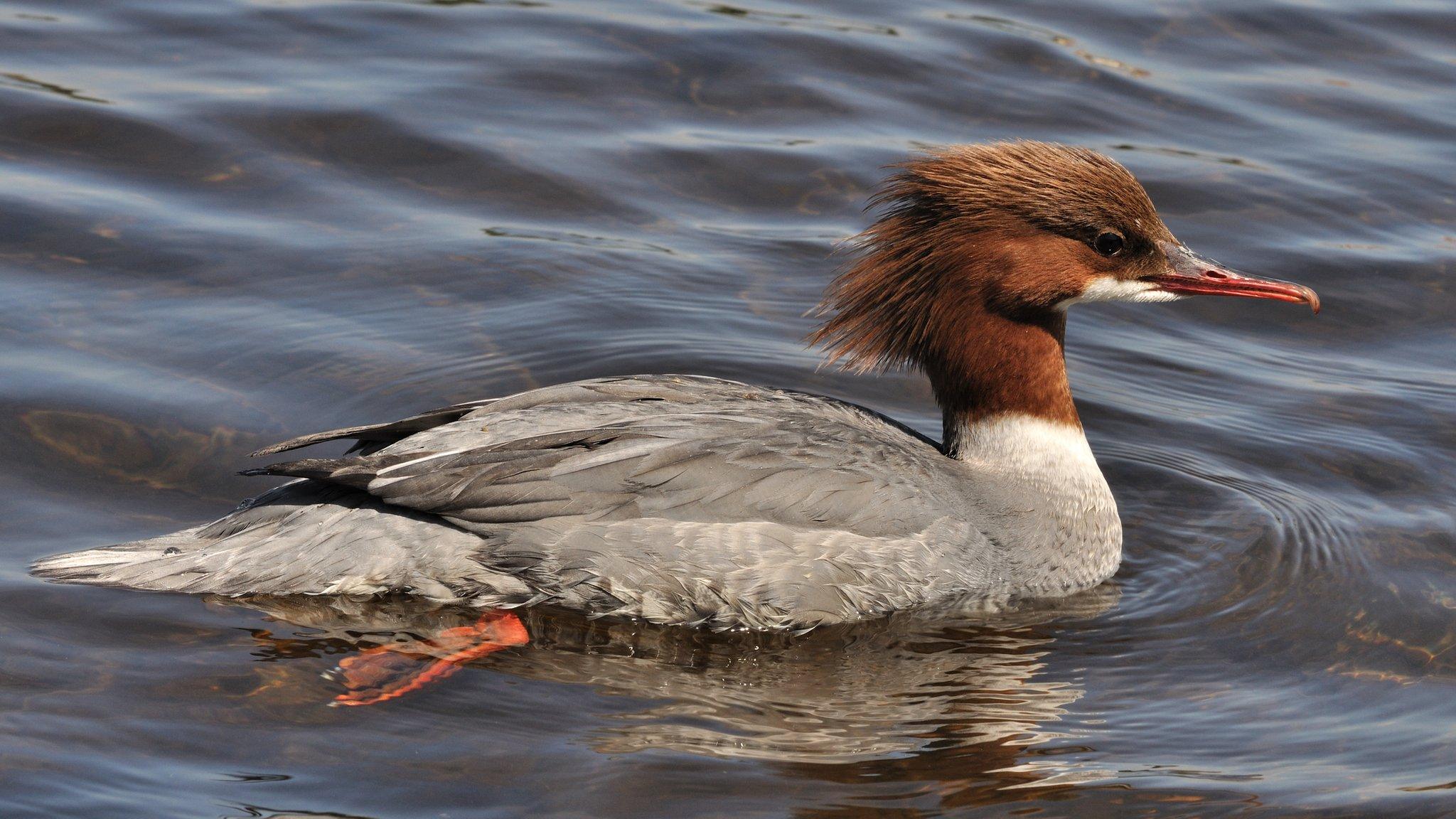Welsh anglers want to double number of cormorants culled
- Published
- comments
Mark Lloyd, chief executive of the Angling Trust, wants the system for controlling the birds simplified
Anglers want to double the number of fish-eating cormorants and goosanders they can shoot in Wales.
The Angling Trust claims the birds are decimating salmon and sea trout stocks.
It wants Natural Resources Wales (NRW) to make it easier for anglers to apply for licences to kill them.
The Welsh Ornithological Society said there was not enough evidence the birds were a problem, while NRW said it was not planning to make any changes to its licensing system.
Since 2013, 80 licences have been issued, 130 goosanders have been shot and 347 cormorants have also been culled.
Applicants need to prove they have tried to scare off the birds and present a month's worth of counting data for a stretch of river.
Cormorant numbers started to rise after it became a protected species in 1981 and anglers claim goosanders - a "saw-billed" duck - are now a common sight on many Welsh rivers too.
Each bird can eat up to a pound of fish a day.
In recent years, a campaign by the Angling Trust in England has led to a review by the UK government of the number of birds that are allowed to be shot and the introduction of a simplified licence application form.
The charity now wants to see action in Wales.

There are up to 3,800 breeding pairs of goosander across the UK
Angling is thought to contribute about £150m a year to the Welsh economy, with rivers renowned for their salmon and sea-trout, known locally as sewin.
But earlier this year, NRW reported fish stocks had hit "unprecedented lows".
It proposed new bylaws, including making it mandatory for anglers to throw back the fish they catch for the next 10 years.
Mark Lloyd, chief executive of the Angling Trust, said it would now be "timely to allow anglers greater freedom to control cormorants and goosanders".

He claimed the current number of licences being issued to shoot the birds would make "no dent at all in the population".
"We would like there to be a doubling of those numbers and to make it much less difficult for fishermen to apply for licences," he added.
The charity has launched a website where people can record when they spot the birds fishing inland.
But the Welsh Ornithological Society said "a series of random sightings" would not provide sufficient evidence for more licences to be granted.
'Protected species'
Chairman Mick Green said formal and systematic river surveys would be needed.
"We think there needs to be proper scientific surveys done to establish what the population of these birds actually is and what the level of river usage is, before any licences are given," he said.
"It's only then that we can be sure there won't be any adverse effect on the population of these protected species."
He added water quality and habitat deterioration could contribute to fish decline and more should be done to tackle those issues "rather than blaming wildlife".
Nick Thomas, NRW's north east Wales operations manager, said it realised fish-eating birds could be having an impact but it needed evidence of specific harm before giving permission to shoot the birds.
"Provided fishermen supply us with information we are prepared to issue licences," he added.
- Published4 September 2017
